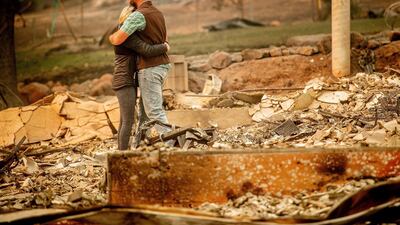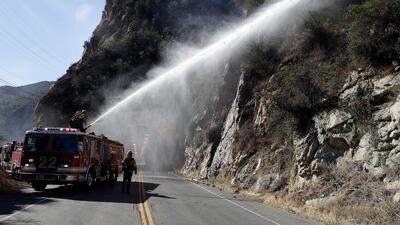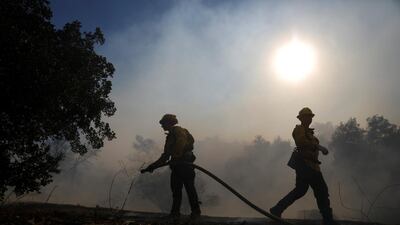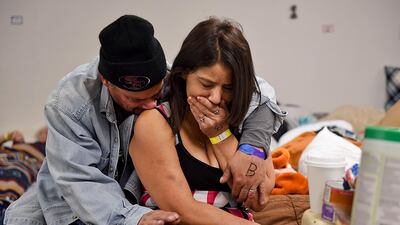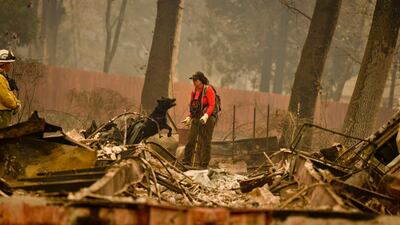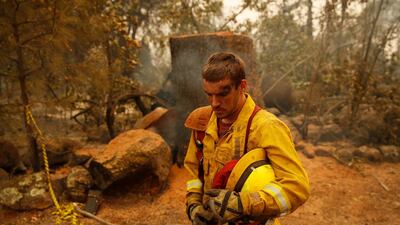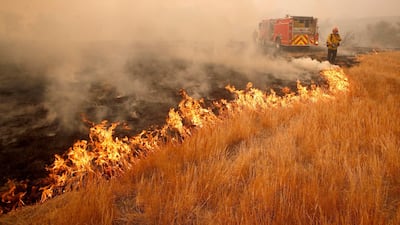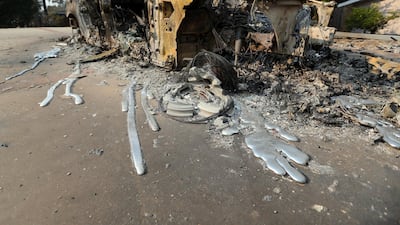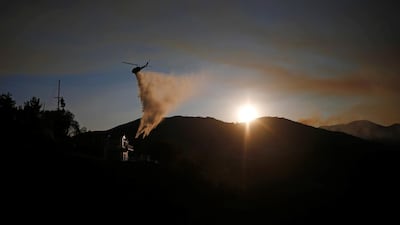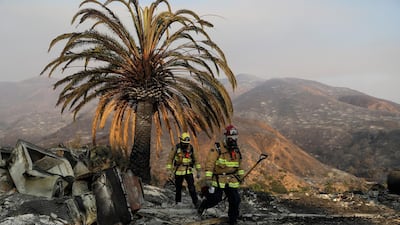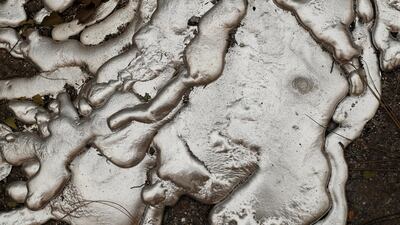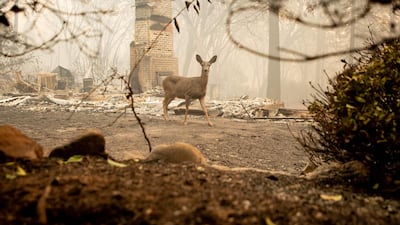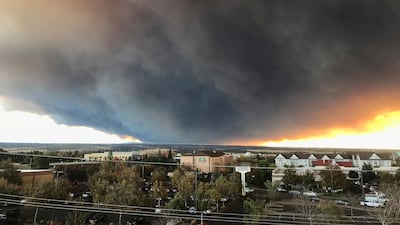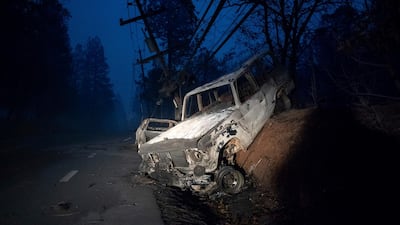The dead were found in burnt-out cars, in the smouldering ruins of their homes, or next to their vehicles, apparently overcome by smoke and flames before they could jump in behind the wheel and escape. In some cases, there were only charred fragments of bone, so small that coroner’s investigators used a wire basket to sift and sort them.
Forty-two people were confirmed dead in the wildfire that turned the Northern California town of Paradise and outlying areas into hell on earth, making it the deadliest blaze in the state's history.
The search for bodies continued on Monday. Up to 230 people remained unaccounted for by the sheriff’s reckoning, four days after the fire swept through the town of 27,000 and practically wiped it off the map, with flames so fierce that authorities brought in a mobile DNA lab and forensic anthropologists to help identify the dead.
Meanwhile, a landowner near where the blaze began, Betsy Ann Cowley, said she got an email from Pacific Gas & Electric the day before the fire last week telling her that crews needed to come onto her property because the utility’s power lines were causing sparks. PG&E had no comment on the email, and state officials said the cause of the inferno was under investigation.
_______________
Read more:
Gerard Butler shares dramatic photo of his destroyed house - asks for support for firefighters
Wildfires: What causes them and why they're happening more frequently
Hell in Paradise: fire crews in grim search for California’s dead
Hollywood celebrities fear for their homes and safety as wildfires ravage California
_______________
As the search for victims continued, friends and relatives of the missing called hospitals, police, shelters and the coroner’s office in the hope of learning what became of their loved ones. Paradise was a popular retirement community, and about a quarter of the population was over 65.
Tad Teays awaited word on his 90-year-old dementia-stricken mother. Darlina Duarte was desperate for information about her half-brother, a diabetic who was largely housebound because he had lost his legs. And Barbara Hall tried in vain to find out whether her aunt and the woman’s husband, who are in their eighties and nineties, had made it out alive from their retirement community.
“Did they make it in their car? Did they get away? Did their car go over the edge of a mountain somewhere? I just don’t know,” said Ms Hall, adding that the couple had only a landline and calls were not going through to it.
Megan James, of Newfoundland, Canada, searched via Twitter from the other side of the continent for information about her aunt and uncle, whose house in Paradise burnt down and whose vehicles were still there. On Monday, she asked on Twitter for someone to take over the posts, saying she is “so emotionally and mentally exhausted”.
“I need to sleep and cry,” Ms James added. “Just PRAY. Please.”
The blaze was part of an outbreak of wildfires on both ends of the state. Together, they were blamed for 31 deaths, including two in celebrity-studded Malibu in Southern California, where firefighters appeared to be gaining ground against a roughly 143-square-mile (370-square-kilometre) blaze that destroyed at least 370 structures, with hundreds more feared lost.
Some of the thousands of people forced from their homes by the blaze were allowed to return, and authorities reopened US 101, a major highway through the fire zone in Los Angeles and Ventura counties.
Malibu celebrities and mobile-home dwellers in the nearby mountains were slowly learning whether their homes had been spared or reduced to ash.
More than 8,000 firefighters statewide were battling wildfires that scorched more than 840 sq km, the flames feeding on dry brush and driven by blowtorch winds.
In Northern California, crews still fighting the blaze that obliterated Paradise contended with wind gusts up to 64kph overnight, the flames jumping 100 metres across Lake Oroville. The fire had grown to 303 sq km and was 25 per cent contained, authorities said.
There were small signs of some sense of order returning to Paradise and also anonymous gestures meant to rally the spirits of firefighters who have worked in a wasteland for days.
Large American flags stuck into the ground lined both sides of the road at the town limits, and temporary stop signs appeared overnight at major intersections. Downed power lines that had blocked roads were cut away, and crews took down burned trees with chainsaws.
The 29 dead in Northern California equalled the state's deadliest single fire on record, a 1933 blaze in Griffith Park in Los Angeles. A series of wildfires in Northern California’s wine country last autumn killed 44 people and destroyed more than 5,000 homes.
